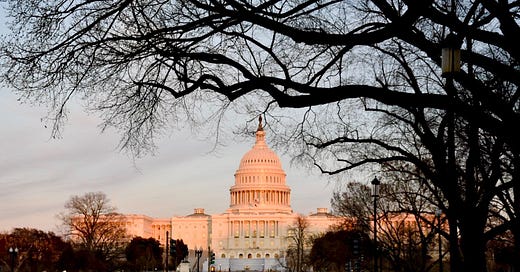On February 3rd, I woke up to a message from my boss asking if I had a few minutes to chat. I knew what was coming. The weeks after Trumps inauguration were fraught with uncertainty about what things would look like in the world at large, and as news kept rolling out about the freeze on foreign aid, I knew that things were about to change in the international development industry in a big way.
I’ve worked in international development for 6 years now, and if you count grad school where I studied public health with a global health lens, then it’s been 8 years. Historically, this industry has had consistent bipartisan support. Even with changing administrations, it seemed that American leadership understood the soft power of international aid.
Clearly, not anymore. I worked at USAID for four years and before I worked there and even after I left—USAID was a guiding light for the aid industry. USAID funded projects looked to the Agency for funding and for guidance on how to design programs, as a grad student I looked to USAID to learn more about what the U.S. government had been supporting globally. USAID is where things were decided, emerging issues were raised, and where some of the best and brightest of international development professionals spent years in service to their country.
From JUST the dismantling of USAID, an estimated 51,000+ American jobs and 100,000+ jobs were lost globally.
While this is not a rant about everything that USAID stood for and everything that is wrong about what’s happening, I do want to make a few things clear. USAID operated on less than 1% of the federal budget. Think about that. The impact that this Agency had globally on that type of a budget is astounding. Without those funds, hospitals overseas have already closed, NGO’s in countries across Africa, Southeast Asia, and Latin America have shuttered because their programs depended on USAID funds and they can’t afford to pay their staff or implement their programs. Millions of people around the world will lose access to critical vaccines, malaria treatment, family planning and reproductive services, antiretrovirals for HIV, and the list goes on. People will die.
I don’t disagree that international aid could be done differently. I think the very nature of this work is to continuously ask ourselves if we are doing the work in the most equitable, honest, and inclusive way possible.
The shift to equipping local organizations be more sustainable, work with local governments on health financing, and train local health workers with skills and education has been ramping up in the last decade and while it’s a move in the right direction I do think there is more the industry could do to partner with countries, communities, and governments in a more sustainable way.
One of my USAID coworkers once said, “If we aren’t asking ourselves these types of questions, then we probably aren’t the person for the job.”
I got into this industry for several reasons. The most basic of them all is “to help people.” However ego centric it may be, everyone wants to do work that is meaningful in some way, and this felt like a good way for me to use my skills and interests to help make the world a little bit better. But another big reason has to do with my curiosity of the world. I want to know other cultures, I want to meet new people and learn new ways of doing things, I want to learn what their challenges are, what their successes are. I want to hear stories and tell stories.
While I know I don’t need to relate this to my love of travel, it is definitely intertwined. I got the travel bug at an early age and part of that bug is to see, to learn, to listen, to understand ways of life other than my own. It is to know that at our core, humans want connection and love, and we all have the same basic needs of food, water, shelter, employment, and community.
My work in international aid was (is?) a way to integrate my love of learning about the world with my writing and storytelling skills with a desire to do something good.
While I really don’t know what my future will hold, I’m more concerned about the impact this will have on the rest of the world. I will be okay. Millions of other people who depended on U.S. Government aid will not.





